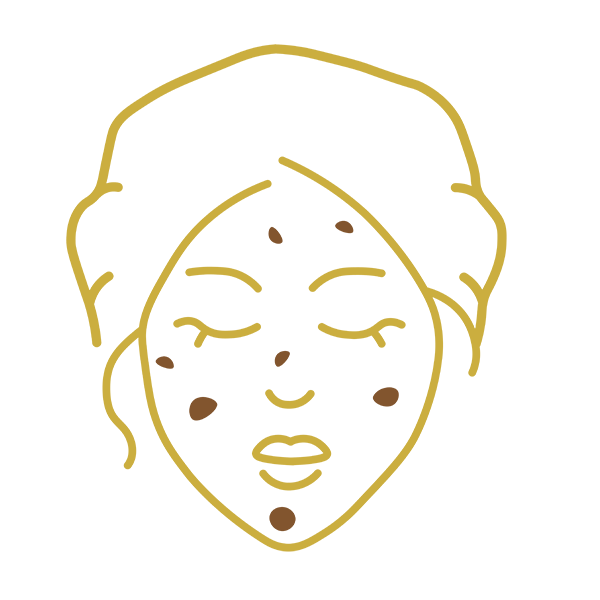

Post acne pigmentation develops when a pimple, causes the skin to become inflamed. As the skin heals, it produces too much melanin. Melanin is the protein in the skin that gives the skin its color. It’s the excess melanin that darkens and discolors the skin.This discoloration remains even after the wound has completely healed.Most people with acne have some degree of Post acne pigmentation. And it’s not just the big blemishes that cause these spots: Hyperpigmentation can follow even relatively minor pimples and papules.That said, the more inflamed a breakout, the larger and darker the spot tends to be. Picking or popping a pimple increases the chance of developing Post acne pigmentation, simply because you’re increasing inflammation.
Q switched ND : YAG laser :
Q-Switched laser that is highly safe for Indian skin to treat unwanted pigmentation on skin. Q -Switch laser creates an invisible beam of light that specifically targets the brown pigment or melanin present in the dark spots without having any affect on the surrounding skin.The laser energy feels like many tiny hot dots on your skin. The discomfort is greatly reduced (but not eliminated) by a stream of cold air directed at the spots during treatment. The bouts of pulses can treat a variety of cases including tattoo removal and hyper pigmentation.
CHEMICAL PEELS :
A chemical peel uses acids at stronger concentrations to treat the desired area of skin. They reduce the appearance of hyperpigmentation by removing the epidermis. Deeper versions may also penetrate the middle layer of your skin (dermis) to produce more dramatic results.
Although many chemical peels are available OTC, you might consider getting a professional-grade peel at your dermatologist’s office. These are more powerful, and they yield quicker results.
Everything you need to feel healthy and beautiful
Hyperpigmentation acne occurs when a dark spot appears on the skin after a pimple disappears. These dark spots may occur in all skin types, but they occur more commonly in people with darker skin tones.
Post acne pigmentation develops when a wound or irritation, like a scrape, rash, or pimple, causes the skin to become inflamed. Most people with acne have some degree of post acne pigmentation. Picking or popping a pimple increases the chance of developing post acne pigmentation, simply because you're increasing inflammation. There are other causes of post acne pigmentation, including sunburn, chemical peels, dermabrasion, and laser resurfacing.
Your acne should be under control. More stubborn or severe breakouts need to be treated with prescription acne medications if you want to see real improvement. Use sunscreen every day. The sun may darken the discolorations and increase fading time. Monitor your skin for irritation. Although they are helping you clear your skin, acne treatments and post-acne pigmentation treatments alike also have the potential for causing irritation.
Vitamin C, Azelaic acid, Mandelic acid, Kojic acid, Niacinamide, Hydroquinone, Retinoids, Chemical peel, Laser peel, Microdermabrasion can treat post acne pigmentation.
Hydroquinone may cause skin irritation for some people so it's worth talking to your doctor before beginning hydroquinone treatment.
Be on the lookout for excessive dryness, redness, and irritation. This can trigger post acne pigmentation on its own.
Azelaic acid is available by prescription only. As always, monitor your skin for redness and irritation and let your doctor know right away if you experience these side effects.
Your acne should be under control. More stubborn or severe breakouts need to be treated with prescription acne medications if you want to see real improvement. Use sunscreen every day. The sun may darken the discolorations and increase fading time. Monitor your skin for irritation. Although they are helping you clear your skin, acne treatments and post-acne pigmentation treatments alike also have the potential for causing irritation.
Vitamin C, Azelaic acid, Mandelic acid, Kojic acid, Niacinamide, Hydroquinone, Retinoids, Chemical peel are some medications you can use.
It's better to consult your dermatologist if the condition doesn't better with the remedies you try by yourself.
You'll need multiple sessions depending upon the type of treatment you are undergoing.
Copyright © 2023 SAPPHIRE Cosmetic Medical Wellness (Private) Limited. All rights reserved.